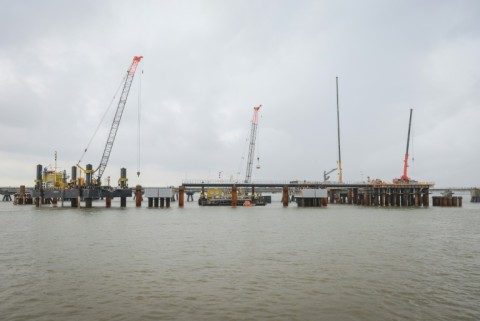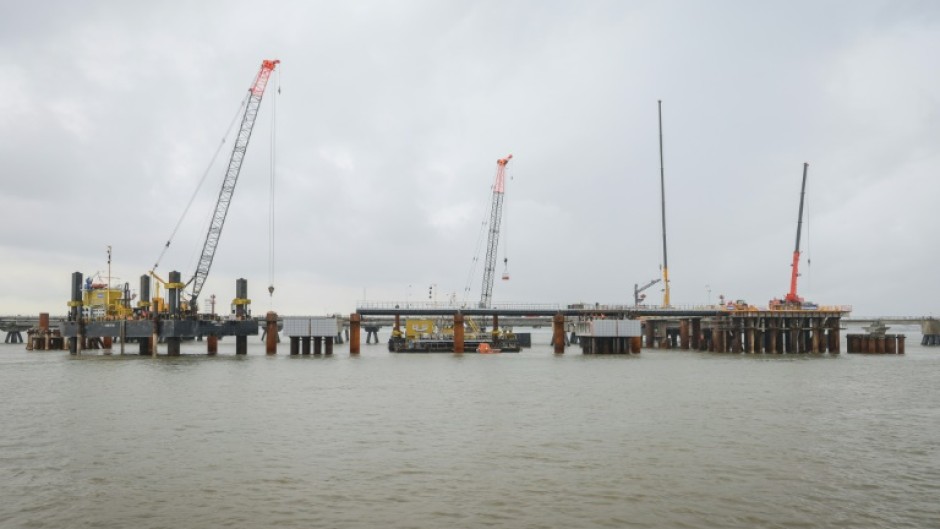
BERLIN - Germany's most strategically important building site is at the end of a windswept pier on the North Sea coast, where workers are assembling the country's first terminal for the import of liquefied natural gas (LNG).
Starting this winter, the rig, close to the port of Wilhelmshaven, will be able to supply the equivalent of 20 percent of the gas that was until recently imported from Russia.
Since its invasion of Ukraine, Moscow has throttled gas supplies to Germany, while the Nord Stream pipelines which carried huge volumes under the Baltic Sea to Europe were damaged last week in what a Danish-Swedish report called "a deliberate act."
In the search for alternative sources, the German government has splashed billions on five projects like the one in Wilhelmshaven.
Altogether the new fleet should be able to handle around 25 billion cubic metres of gas per year, roughly equivalent to half the capacity of the Nord Stream 1 pipeline.
Following the outbreak of the war in Ukraine, Germany passed a law to drastically speed up the approval process for LNG terminals.
In Wilhelmshaven, the work is coming along rapidly. The terminal should be finished "this winter", says Holger Kreetz, who heads the project for German energy company Uniper.
The strategic importance of the terminal has seen building work advance surprisingly quickly. "Normally, a project like this takes us five to six years," Kreetz tells AFP.
The arrival of the new terminal has been welcomed by many residents in Wilhelmshaven, where deindustrialisation has pushed the unemployment rate up to 10 percent, almost twice the national average.
Criticism of the project has been dismissed by Economy Minister Robert Habeck, a Green party politician, who has emphasised the importance of "energy security".
By 2030, the site is set to be converted for the importation of green hydrogen, produced with renewables, which Berlin has backed as part of its energy transition.

